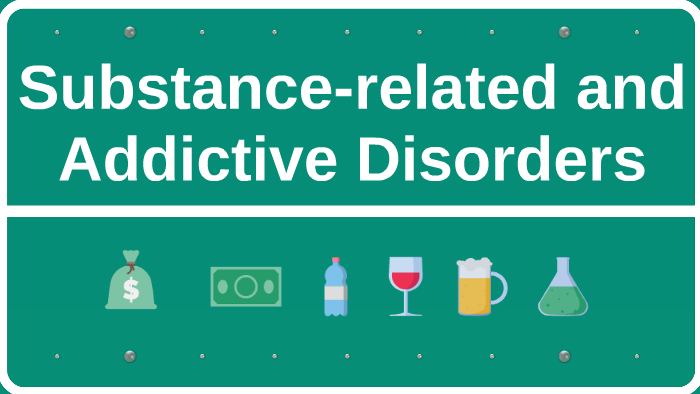Substance-Related and Addictive Disorders
Substance-related and addictive disorders affect peoples’ brains and behavior, leading to an inability to control the use of illegal and legal medicine or drugs. Alcohol, marijuana, and nicotine are the most widely abused drugs leading to the disorders. Substance and addictive disorders render an individual to have a strong desire for drugs regularly where intense urge blocks any other thought in mind. Patients encounter physical health issues, behavioral problems, financial problems, neglect, and problem at work or school. This essay will discuss the diagnostic criteria for substance and addictive disorders and provide evidence-based interventions.

The DSM-V has been used to diagnose and classify substance and addictive disorders.
First, Criterion 1-4 marks impaired control over drugs and substance use (McNeely & Adam, 2020). At this stage, an individual consumes substances in high amounts for longer periods than expected. However, they may have the desire to regulate the substance use or may have attempted in the past. The person spends ample time obtaining, abusing. Consequently, and recovering from the effects of abuse and strongly desires to use the drugs. Criteria 5-7 feature social impairment, where drug abuse hinders a person from meeting daily obligations at home, school, or work.
The individual continues to use despite the immense social impairment encountered. Moreover, Criteria 5-9 mark the risky use where an individual engages in substance use in unsafe conditions frequently and continues using despite knowing the health and psychosocial problems encountered. Lastly, Criteria 10-11 is the pharmacologic stage where a person has high drug tolerance and thus requires high doses to experience the effects and experience withdrawals when the drug level decreases in blood and brain (Substance-Related and Addictive Disorders).
Recent evidence suggests multicomponent psychosocial therapy as an effective intervention strategy for substance-related and addictive disorders. The intervention combines family-based therapy, cognitive behavioral therapy, contingency management, and motivational interviewing (Fadus et al., 2019). In family-based therapy, the loved ones promote treatment attendance and build positive relations with the client.
At the same time, CBT aims to establish therapeutic relationships to change the client’s thoughts, behavior, and mood connected with the problems. Additionally, motivational interviewing encourages clients to recognize their addiction problems as a way toward recovery. In conclusion, contingency management reinforces the client’s behavior to cease substance abuse through rewards as evidence for positive behavior 9Substance-Related and Addictive Disorders0.
References
Fadus, M. C., Squeglia, L. M., Valadez, E. A., Tomko, R. L., Bryant, B. E., & Gray, K. M. (2019). Adolescent substance use disorder treatment: an update on evidence-based strategies. Current psychiatry reports, 21, 1-10.
McNeely J. & Adam A. (2020). Substance Use Screening and Risk Assessment in Adults [Internet]. Baltimore (MD): Johns Hopkins University; Table 3, DSM-5 Diagnostic Criteria for Diagnosing and Classifying Substance Use Disorders [abc] Available from: https://www.ncbi.nlm.nih.gov/books/NBK565474/table/nyc
A Page will cost you $12, however, this varies with your deadline.
We have a team of expert nursing writers ready to help with your nursing assignments. They will save you time, and improve your grades.
Whatever your goals are, expect plagiarism-free works, on-time delivery, and 24/7 support from us.
Here is your 15% off to get started.
Simply:
- Place your order (Place Order)
- Click on Enter Promo Code after adding your instructions
- Insert your code – Get20
All the Best,
Cathy, CS


